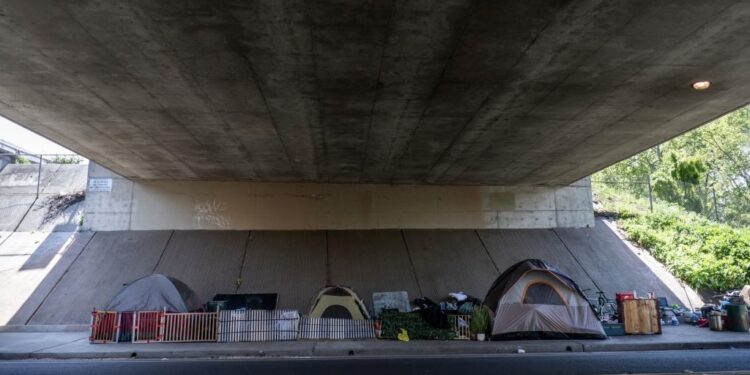Some major changes could be coming to address the homelessness crisis in Sacramento, California, the capital of the state.
The area has seen an almost 70% increase in homelessness in the city over the past few years, but a new ballot measure is up for a vote on Tuesday that could change the situation.
Estimates show that at least 9,278 people are homeless, and most of them are sleeping outside or in cars, according to the 2022 Point-In-Time Count, which was conducted in February of this year and published in July. The county typically takes count of the homeless people in the area every two years over a twenty-four hour period of time.
The data revealed that the amount of homeless people has gone up 67% since 2019. The report noted that rent costs in the county have significantly spiked by an average of 20% since March of 2020 through November 2021.
Ballot Measure O is up for citizens to vote on in Sacramento this Election Day, which would give more power back to residents in the area over homelessness.
Measure O would “[require] the city of Sacramento to provide shelter beds based on 60% of its homeless population and making it a criminal offense to camp in public and certain private areas if the person refuses the emergency shelter,” according to Ballotpedia. The city would have 90 days to approve hundreds of new shelter locations.
The ordinance, adopted in April of this year, specifies “[c]amp facilities” as “tents, huts, vehicles, vehicle camping outfits, or temporary shelter,” as well as potentially other locations. An “[e]mergency shelter space” is defined as “a city-authorized location providing temporary shelter or alternative sleeping space for a person experiencing homelessness until permanent shelter or housing can be obtained.”
A majority of voters must vote in favor of the ordinance in order for it to go into effect.
East Sacramento resident Dolores Sanchez told CAP Radio that she stopped walking from her home to coffee shops after she was yelled at by homeless people.
“That really has an impact on my life and that was something that I just absolutely enjoyed,” Sanchez said of her walks. “I would bring people here from out of town, and we would take those walks. That no longer is happening, and it breaks my heart.”
Sanchez is in favor of Measure O, and pointed out how it can help the homeless, too.
“I worked with the homeless for 11 years, and I know that they don’t want to be in these camps,” Sanchez said, discussing how she volunteered with her church. “So it’s not helping the people that are homeowners, business owners. And it’s definitely not helping these good folks that need a place to sleep and need some dignity.”











